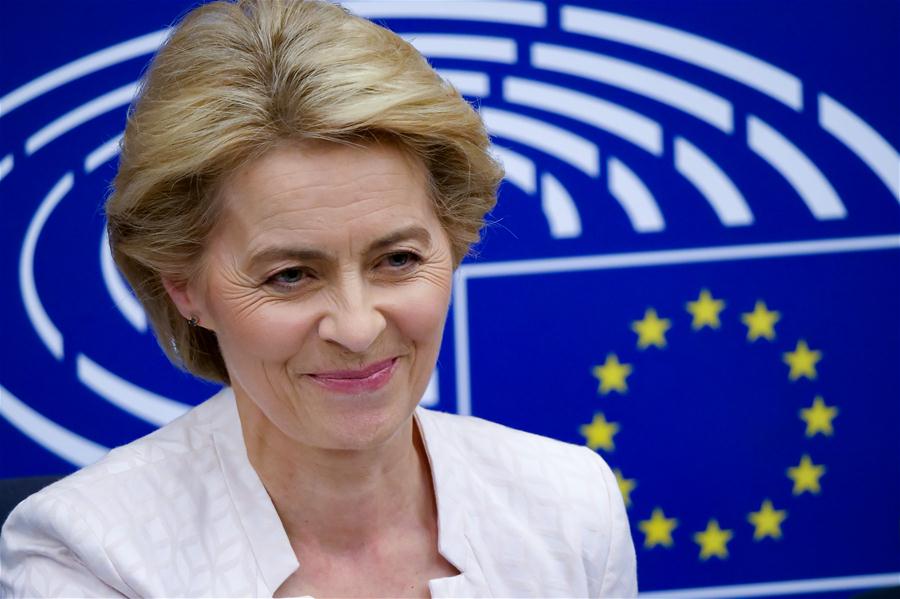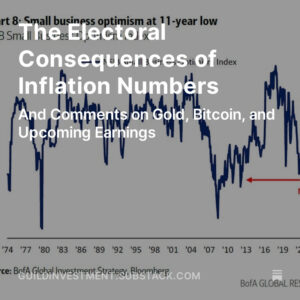Last week we mentioned the “election” of a new President of the European Commission (EC), Ursula von der Leyen. We say “election” in quotation marks to remind readers that the European Commission, the primary legislative organ of the European Union, is not comprised of popularly elected members. Von der Leyen was proposed by the members of the European Council, which is a body primarily consisting of Europe’s heads of state, and approved by the European Parliament, which will also approve the other 27 European commissioners, who function essentially as the President’s cabinet.
The democratic element in this process is diffuse and indirect. To citizens who enjoy a republican or parliamentary form of government, it may be counter-intuitive that Europe’s popularly elected body, the European Parliament, does not propose legislation. Nevertheless, this is the case. Of course, its basically non-democratic character fueled the sense of Brexit supporters in the UK that EU membership was subordinating their own popular government to government by unelected European bureaucrats.
Ursula von der Leyen, the First Female President of the European Commission

Source: Xinhua
Von Der Leyen and the Future of Europe
Occurring as it is on the cusp of the UK’s departure from the European Union, this new European executive is significant. Whether the UK departs in an orderly fashion or a disorderly fashion — with a deal outlining future relations with the EU or without one — it will be gone. It has long been a thorn in the side of European politicians seeking a deeper integration of Europe’s countries in the direction of an eventual “United States of Europe.” Pro-union Europeans will now have a much freer hand in setting an integration agenda. (Or perhaps, with the UK gone, they will have lost an excuse for their own disagreements and divisions.)
Von der Leyen comes from a prominent German political family; her father, Ernst Albrecht, was an early European civil servant in Brussels and later served as a minister in regional German government. She grew up in a bilingual French- and German-speaking household. Her family’s prominence led her to spend some of her young adulthood in exile in London, attending the London School of Economics, due to kidnapping threats from 70s radical German terrorist groups such as the Baader-Meinhofgang. There she got a taste for a more liberal life than her conservative upbringing: in London, she says, she “lived more than [she] studied,” and called London “the epitome of modernity: freedom, the joy of life, trying everything.” She later spent several years in the United States while her husband taught at Stanford University.
That taste of liberal life stuck with her. In her own political career she was a member of the Christian Democratic Union (CDU), Germany’s major center-right political party. However, although she was Angela Merkel’s longest-standing cabinet member, and was mooted as a possible successor, her liberal views on subjects such as gay marriage, paid paternity leave for new fathers, and a national minimum wage alienated her from her own party’s power-brokers. (Indeed, her rejection was a personal defeat for Merkel, who had championed her cause.) In a sense, then, she straddles the divide between modernists and traditionalists in German and European politics.
“My Agenda For Europe”
As she was making her case for the presidency of the EC, she produced a document — which interested readers can find here — outlining what she sees as the EU’s critical legislative agenda moving forward.
Her document strikes a tone that we would expect based on her personal background, praising European traditions such as the rule of law and promising to shape institutions that will support them. She probably gives a little too much ground to immigration skeptics and cultural nationalists than centrist and center-left politicians would like. But on balance, the program she outlines suggests that post-Brexit Europe will turn resolutely in the direction of closer integration among member states, including fiscal integration, and a deeper and more interventionist industrial policy that puts state initiatives front and center in the European economy.
Here are some elements of her agenda that struck us particularly.
First, a focus on the environment. Von der Leyen’s first priority is an intensification and acceleration of a variety of European environmental and carbon-neutrality objectives. Noteworthy for investors is the creation of a new “Sustainable Europe Investment Plan,” to support €1 trillion of investment over the next decade. This will accelerate the transition of the European Investment Bank into a more wholly climate-focused financing institution. Many aspects of her environmental program (such as proposals to support farmers, promote biodiversity, and curb single-use plastics) are laudable, although we are skeptical that they will produce the economic growth dividends that their supporters anticipate. Still, “green bonds” issued as part of such an investment push will likely be excluded from the national debt accounting that restrains more fiscally expansive policy in Europe. Therefore, this plan may be a workaround that permits the European Commission to get a more reflationary fiscal policy underway in spite of objections from fiscally conservative northern European governments. If that is the case, it will be good for European growth.
Second, a significant expansion of the EU’s role in the European economy. Here, her document reads like a litany of new centralized European entities:
- a “Capital Markets Union,” ostensibly to encourage investment in small and medium-sized enterprises;
- the completion of the banking union and the creation (at last) of a “common backstop” for failed banking institutions;
- a common “European Deposit Insurance Scheme”; a centrally determined minimum wage (with local variations by living expense);
- a “European Unemployment Benefit Reinsurance Scheme,” in which centralized funding would backstop individual countries facing budget stress from unemployment benefits paid during an economic crisis;
- and a “common and consolidated corporate tax base,” in part to accomplish her longstanding goal of ensuring adequate tax payments from American tech companies which have used creative corporate structuring in different jurisdictions to minimize their tax burdens.
Third, stricter requirements for individual nations to comply with a “Common European Asylum System.” (This is aimed at frontline nations such as Hungary which turned away migrants as they arrived in overwhelming numbers in 2015 and 2016.) She also promises new resources for border enforcement and new financial assistance for nations facing large influxes of migrants.
And fourth, many new social initiatives, most of which will sound rather intrusive to the ears of those reared in a tradition of Anglo-Saxon limited government (i.e., British and Americans).
Towards a United States of Europe
All of these prospective entities sound as if they would be much more at home in a “United States of Europe” than in a “Europe of nations.” And indeed, that is von der Leyen’s publicly professed goal — although she has said that she does not think it will arrive until her grandchildren are adults.
With the UK gone, it seems that the pro-European elite — and we do not mean the word “elite” in a derogatory sense — will have a freer hand to move Europe towards the final goal envisioned by its most enthusiastic founders.
Von der Leyen’s agenda suggests that when the UK departs, and can no longer function as the perpetual gadfly of greater European political and fiscal integration, the momentum towards an eventual “United States of Europe” may accelerate. However, that movement will still have to overcome Europe’s internal divisions, which will not dissipate simply because the UK has left. Northern Europeans will still balk at being economically yoked to the southern Europeans whom they view as incorrigible spendthrifts. Whether an emphasis on environmental and social goals will permit enough institutional and financial creativity to allow a modicum of growth-boosting fiscal largesse remains to be seen.
Investment implications: The departure of the U.K., the European Commission presidency of Ursula von der Leyen, and the presence of Christine Lagarde at the helm of the European Central Bank, may allow the partisans of greater European integration to make a reflationary end-run around the fiscal reluctance of stingy northern European countries such as Germany. If they succeed, it could result in a modest boost to European economic growth. The heavy-handed balance of von der Leyen’s agenda, though, does not encourage us to think that a renaissance of European economic dynamism will be in the cards post-Brexit. On the contrary, although Europe could be a trade if reflationary measures are successfully enacted, we believe the U.K. will provide greater long-term opportunity.







